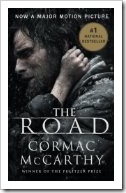
Image via Wikipedia
Guest Post
By Joseph Bates,
Author of The Nighttime Novelist: Finish Your Novel in Your Spare Time
There’s a wonderful quote from Toni Morrison that gets to the heart, I think, of how writers manage the too-many responsibilities of adult life while keeping their creative work on track: “I type in one place, but I write all over the house. I never go to the paper to create. The meat and juice and all that I work out while doing something else. . . “
The Something Else Morrison refers to, of course, is doing the dishes. Or taking care of the pets. Managing a household. Working a day job. Standing in line at the grocery store. Getting an oil change. You know what I mean: the Something Else that comprises the majority of a person’s – -and a writer’s – -day, and which seems to conspire to keep you from writing.
Call it writing vs. Something Else.
Or call it what it really feels like: writing vs. Everything Else. For the writer juggling real-world responsibilities, the good news is that the two aren’t really as separate as that. In fact, the Something Else, as Morrison says, is the time when much of the important work gets done: Figuring out what your character wants, and why he’s behaving the way he is. Considering what possible course(s) of action he might take and why, and what the consequences of those actions might be. Weighing the possible outcomes in order to find the one that seems most interesting to you, and which suggests the most potential for what might happen next.
Part of this is good old fashioned daydreaming – -asking What If?, letting the mind wander – -but the larger part is testing the possibilities that arise, not just resolving whatever current story problem you’re facing but anticipating, and hopefully avoiding, the next. Making sure your protagonist acts within the boundaries of consistency and logic, according to the rules you’ve set out, while still being able to surprise the reader (and you). Making sure the story as a whole builds with consistency and logic and with a growing sense of urgency and inevitability.
The proper time to consider all of this isn’t when you’ve sat down to write. If so, you’ll find yourself running into brick walls, and by the time you’ve finally broken through, it’s time to stop for the night. Even worse, when you relegate writing time to such problem-solving – -fretting over what to do next, figuring out why things aren’t working, rushing to Be Creative as the clock ticks down – -the writing time eventually becomes something you dread, just one more chore for the day.
But when you use the time away from the keyboard to consider the possibilities, and to work through problems with equal parts inspiration and intelligence, then the time in front of the keyboard is devoted to testing what you’ve come up with, seeing how it plays out even allowing for unanticipated moments and surprise, because you’re proceeding from a solid baseline. In other words, the writing time feels, as it should, like play. And instead of watching the clock tick down while trying to create, you’ll find yourself watching the clock the rest of the day, excited to get back to work because the story has taken on a life of its own, and you can’t wait to be in front of the keyboard to get it all down. This is the ultimate secret of Time Management for Writers: not about finding more hours in the day – -and if you find some, please tell me where you got them – -but about working smarter, using the time you have to its best advantage. Making those creative moments count.
More to the point, this isn’t just about making the most of your time but also your energy, focus, and talent. A boxer who enters the ring thinking, I wonder if I should throw a left jab today, or maybe a right hook? That boxer is going to get flattened. But the one who’s put in the work beforehand – -not just the physical but the mental work, visualizing what needs to be done – -that boxer doesn’t enter the ring fretting about what comes next. He comes out swinging and the last thing he’s thinking about is the bell.
© 2010 Joseph Bates, author of The Nighttime Novelist: Finish Your Novel in Your Spare Time

Author Bio
Joseph Bates’s, author of The Nighttime Novelist: Finish Your Novel in Your Spare Time, published in 2010 by Writer’s Digest Books. His fiction and nonfiction have appeared in such places as The South Carolina Review, Identity Theory, The Cincinnati Review, Shenandoah, and Novel & Short Story Writer’s Market. He holds a Ph.D. in comparative literature and fiction writing from the University of Cincinnati and teaches in the creative writing program at Miami University in Oxford, Ohio.
For more information please visit www.nighttimenovelist.com and follow the author on Facebook and Twitter.
 Tina Fey: “It has been said that to write is to live forever.”
Tina Fey: “It has been said that to write is to live forever.”









